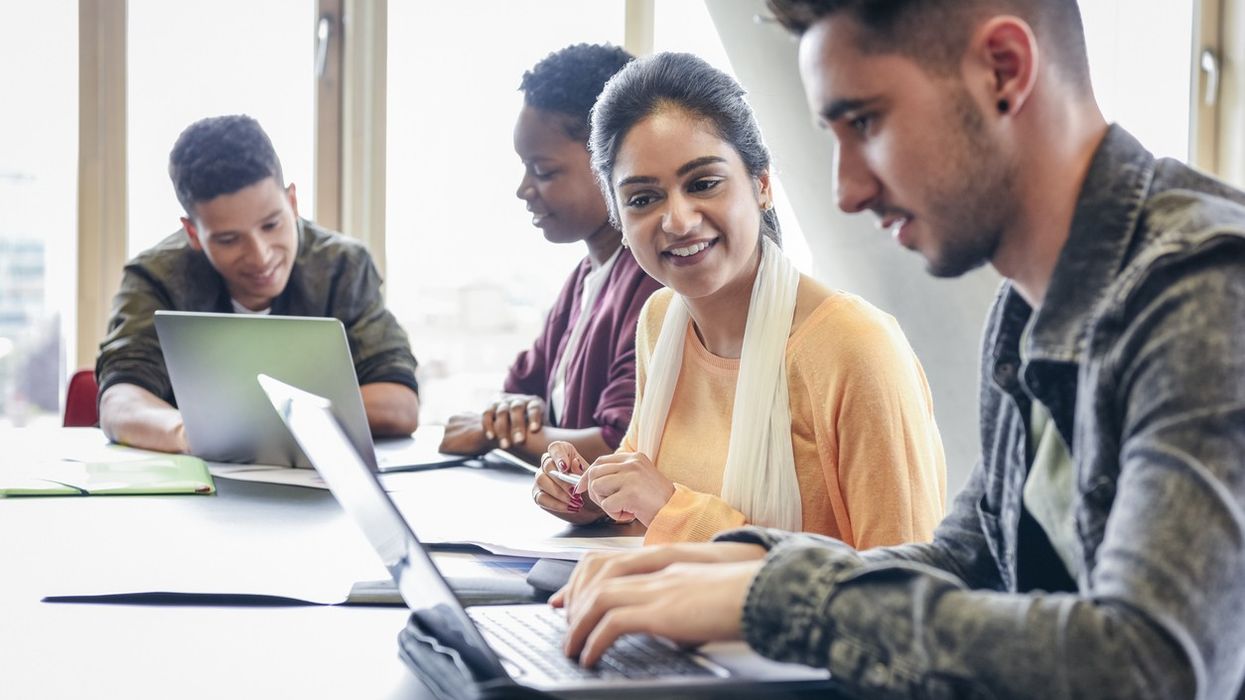THE number of students of Asian origin who achieved a first-class degree in the UK has fallen for the first time, new figures show.
The percentage getting top honours was 27.5 per cent in 2021-2022 compared to 33.3 per cent the previous year, with experts highlighting the devastating impact the pandemic has had on university education in general.
According to the data, the proportion of British Asian undergraduates getting a first class had previously increased every year since the statistics were first collected in 2014-2015.

The number of Asian origin students getting lower second class or third-class honours increased in 2021-22 to 25.2 per cent compared to 20 per cent the previous year, the Higher Education Statistics Agency figures showed.
Dr Jagveer Singh, lead coordinator at the British Organisation of Sikh Students (BOSS), spoke at length to Eastern Eye about the organisation’s experiences with Sikh students.
He said, “People of colour, including those who identify with the Sikh and Punjabi faith communities, have been found through various studies to have been disproportionately affected by the effects of the pandemic and, in particular, the ill health caused by Covid-19.
“The (pandemic) restrictions were also keenly felt, due to being isolated from the strong social and family networks that students of Asian origin are used to - which exacerbated the situation.
“All these effects have caused all sorts of physical, academic, and mental wellbeing issues for Sikh students, which have often been left unnoticed and untreated.
“Government and university initiatives have not been effective at addressing these issues in minority communities. Thus, it’s not surprising that their academic performance has been affected to a greater degree than the other students.”
The figures, published in December, also showed that before the Covid pandemic, the percentage of Asian origin students who achieved first-class honours soared from 22.8 per cent in 2018- 2019 to 30.3 per cent the following year.
Around 36.1 per cent of white students got a first-class degree in 2021-2022, while the figure for black students was 17.3 per cent.
Omar Khan is chief executive officer at the Centre for Transforming Access and Student Outcomes In Higher Education (TASO) thinktank.
He said it is well documented that Covid-19 had a disproportionate impact on disadvantaged and minority groups. Khan told Eastern Eye: “However, the ethnicity degree awarding gap in British higher education is longstanding, with black and Asian undergraduate students less likely to get a first or 2:1 qualification than their white peers.
“In 2021-2022, all ethnic groups saw a drop in the proportion of first and 2:1s being awarded, but the gap hasn’t really changed – before, during or after the pandemic.
“We also know the gap can’t be explained by students’ prior performance in school.
He saied, “Over the years, the sector has developed various strategies to address the gap, which TASO is supporting universities to evaluate better.
“If there is one positive to come out of the pandemic, let it be the sharpened focus it has placed on existing inequalities in our education system and a renewed push towards eliminating them.”
In March 2020, university and college campuses were closed in response to the pandemic, with teaching moving online.
Undergraduates began to return to campuses for face-to-face learning in March 2021, with other students allowed to return two months later.
Jannat Ali, from London, said many of her family and friends who were in university during the pandemic struggled with completing assignments as well as taking exams.
She said, “The hybrid way of learning made it harder for them to ask questions and also to receive adequate support from teachers.
“It was harder being at home and trying to focus when there are so many distractions and no motivation. This was reflected in the grades they received and they didn’t achieve their potential and were disappointed in the circumstances.
Ali added that, “My niece was in her final year at university and was disappointed she didn’t receive better grades.
She said it was harder getting hold of teachers and she’d have to wait longer to receive replies.
“There was a lot of going back and forth by email. She was less motivated sitting at home and felt it would’ve helped her a lot more if she was physically present at the lectures.”
Separate research by the charity, Student Minds, found that 74 per cent of students reported that Covid-19 had a negative impact on their mental health and wellbeing at university.
Two-thirds of respondents said they had “often felt isolated or lonely since March 2020”.




